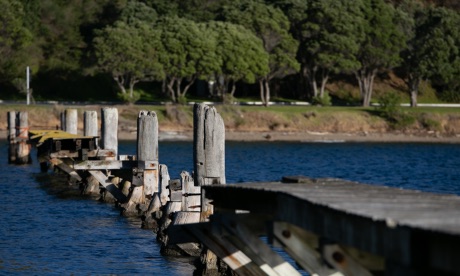We are living in an age of deconstruction, and it’s affecting faith.
Every ideal is picked apart. George Washington has his mural painted over because he owned slaves.
The aspiration for e pluribus unum (“out of many, one”)—from the Great Seal of the United States—is being shredded by the chronic subdividing of increased tribalism.
Even gender is up for grabs, as though chromosomes in place from conception are only a suggestion.
Nothing escapes ruminating scrutiny, skepticism, and the determination to control outcomes.
In Christian circles, deconstruction takes a slightly different form.
Doubt and disillusionment have become the new form of enlightenment.
It somehow sounds more authentic to share our doubt than it is to share our faith with confidence.
We watch thoughtful Christian leaders “break free” from the faith itself, as though shaking off invisible shackles. And it unnerves us.
While Scripture nowhere valorizes doubt, it is an inescapable feature of our fallen experience, particularly in a secular age. “I believe; help my unbelief” is a classic acknowledgement of doubt—and because the man humbly confesses it to Jesus, he is commended rather than rebuked (Mark 9:24).
Perhaps it’s time to take another look at the way doubt and disillusionment can deepen our faith rather than destroy it.
Christians Have a Different Take
Doubt or disillusionment can come in various forms—toward God, toward his people, or just toward life in general.
But none of it has to destroy faith.
Christianity declares that the gospel of Jesus Christ is the transcendent revelation of the living God through all culture and time.
It’s objectively true.
And if the reality of revelation exists pristinely, no matter what mist currently clouds my vision, then doubt and disillusionment need not pose mortal threats.
As a counselor I’ve struggled myself with the same doubt and disillusionment I hear from many other ministry leaders.
I know this to be true: no one really escapes this experience, if they’re honest.
Doubt and disillusionment are rites of passage, occurring most poignantly in a person’s 30s and 40s.
By then it’s become wildly obvious that marriage and ministry and keeping a body healthy are much harder than it looked when friends were throwing rose petals in the air.
The actual experience of doubt, though, can truly feel like you’ve lost your way.
But that sense of lostness is not to be confused with the essence of your faith.
As Paul warned, that is the time to guard against being “led astray from the simplicity and purity of devotion to Christ” (2 Cor. 11:3).
What Will We Do with Doubt?
So what will we do with doubt and disillusionment when it comes our way?
I know what my reflexive tendency is, and I see the same in so many others: just buckle down and pull away.
I’d rather no one know there’s a struggle in my soul.
Few things get better in isolation, though.
“Sin demands to have a man by himself,” Dietrich Bonhoeffer said.
Alone is where we are picked off. There, all by our little self, our mind gets scrambled. Our soul turns cold and hard. Continue reading
- Paula Rinehart is a counselor in Raleigh, North Carolina. She was on staff with the Navigators for many years and now helps her husband with a leadership-development ministry called Mentorlink.
News category: Analysis and Comment.




